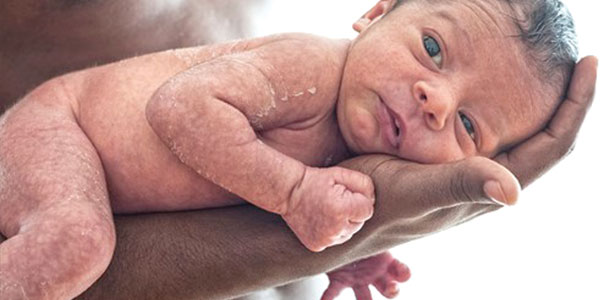
Commentary by Chara
The first time you see your newborn child will change your life forever. However, bringing your baby home also can seem overwhelming, especially if you are a first-time parent.
If you are a first-time parent, the following tips will help you feel more confident and guide you through the basics of having a newborn:
*Accept help: Hospitals have experts who are used to fielding questions, so do not be shy about asking them. Relatives and friends also are great resources for parenting advice. Even when you disagree with them, do not dismiss their opinions. Let their experiences help you.
*Adjust your sleep patterns: Newborn babies sleep around 14 to 17 hours a day. Keep in mind, your baby will usually wake up to eat every three to four hours. So, as parents, you should try to sleep when the baby sleeps. That will help you to have more energy for when feeding time comes again.
*Put your baby in the safest sleeping conditions possible: The safest conditions for a baby to sleep include a mattress with no pillows, blankets, stuffed animals or crib bumpers.
*Determine how you will feed your baby: Remember, the most important physical and mental growth of a baby happens within the first weeks after birth. Within that time, babies eat more than 12 times per day. Deciding to breastfeed or bottle feed a baby during that early growth period will be an important decision based on the mother’s lifestyle. Although breastfed milk has many emotional and physical benefits, it demands more feeding sessions. In contrast, formula feeding offers more freedom and flexibility for moms, and it will be easier to measure how much food the baby is getting.
*Remember the most important factors for changing diapers: Those factors include having a safe, clean place to change the baby, using the correct size of diaper and having a change of clothes in case of a messy blowout. You also should keep in mind that wiping the baby with cotton balls and warm water will help you to avoid rashes and other skin irritations.
*Do not go overboard with bathing: Your newborn baby does not need a daily bath. A bath two or three times a week should be enough.
*Be careful when bathing: Remember, you should avoid tub baths and cover the wound until the baby’s umbilical cord heals.
*Remember the benefits of bathing: Bathing your baby has benefits that go beyond basic cleanup. It can boost the parent-baby bond and soothe the baby.
Cómo cuidar a un niño recién nacido
La primera vez que vea a su hijo recién nacido cambiará su vida para siempre. Sin embargo, llevar a su bebé a casa puede también parecer abrumador, especialmente si es un padres primerizos.
Si es un padre primerizo, los siguientes consejos lo ayudarán a sentirse más seguro y guiarlo a través de los conceptos básicos de tener un recién nacido:
*Acepte ayuda: los hospitales tienen expertos que están acostumbrados a responder preguntas, así que no dude en hacerlas. Los familiares y amigos también son buenos recursos para pedir consejos sobre ser padres. Incluso cuando no esté de acuerdo con ellos, no descarte sus opiniones. Deje que sus experiencias le ayuden.
*Ajuste sus patrones de sueño: los bebés recién nacidos duermen alrededor de 14 a 17 horas al día. Tenga en cuenta que su bebé por lo general se despertará para comer cada tres a cuatro horas. Entonces, como padres, deben intentar dormir cuando el bebé duerme. Eso le ayudará a tener más energía para cuando vuelva la hora de comer.
*Ponga a su bebé en las condiciones para dormir más seguras posibles: las condiciones más seguras para que un bebé duerma incluyen un colchón sin almohadas, mantas, animales de peluche o parachoques de cuna.
*Determine cómo alimentará a su bebé: recuerde que el crecimiento físico y mental más importante de un bebé ocurre dentro de las primeras semanas después del nacimiento. Dentro de este tiempo, los bebés comen más de 12 veces al día. Decidir amamantar o alimentar con biberón a un bebé durante ese período de crecimiento temprano será una decisión importante basada en el estilo de vida de la madre. Aunque la leche materna tiene muchos beneficios emocionales y físicos, exige más sesiones de alimentación. Por el contrario, alimentar con biberón ofrece más libertad y flexibilidad para las mamás y será más fácil medir la cantidad de alimento que está comiendo el bebé.
*Recuerde los factores más importantes para cambiar pañales: estos factores incluyen tener un lugar seguro y limpio para cambiar al bebé, usar el tamaño correcto de pañal y tener una mudada de ropas en caso de un reventón desordenado. También debe tener en cuenta que limpiar al bebé con bolas de algodón y agua tibia lo ayudará a evitar erupciones cutáneas y otras irritaciones de la piel.
*No exagere con los baños: su bebé recién nacido no necesita un baño diario. Un baño dos o tres veces por semana debería ser suficiente.
*Tenga cuidado al bañarse: recuerde que debe evitar bañarse en la bañera y cubrir la herida hasta que el cordón umbilical del bebé sane.
*Recuerde los beneficios del baño: bañar a su bebé tiene beneficios que van más allá de la limpieza básica. Puede aumentar el vínculo de padre e hijo y calmar al bebé.









